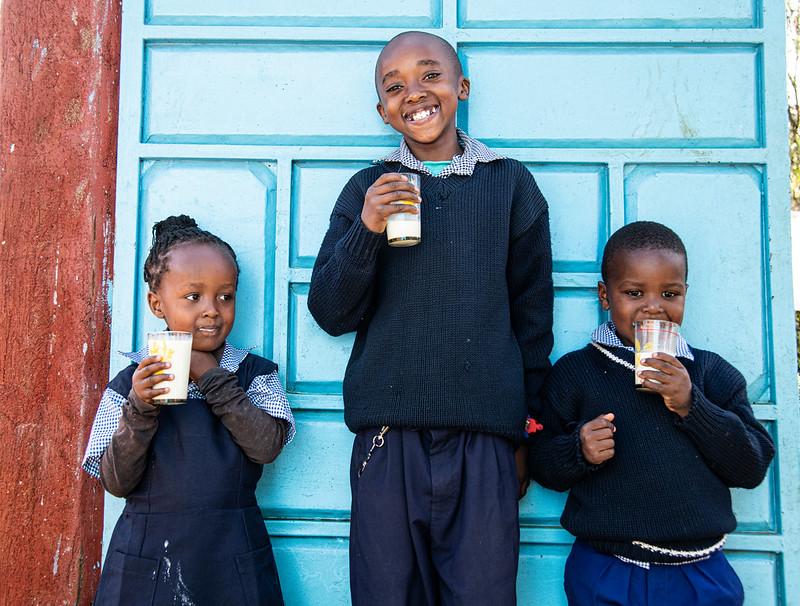
Dietary justice: Can we achieve climate and nutrition goals with animal agriculture - 6 Dec
Core message
The health and nutrition implications of diets that include livestock-derived foods are complex. On the one hand, milk, meat and eggs provide micronutrients that are essential to healthy and diverse diets, especially for populations that are under-nourished and at risk of malnutrition. On the other hand, in resource-rich countries where livestock production is intensive and the per capita consumption of meat and dairy products are high, a reduction in consumption of these foods could generate significant health and climate-related benefits.
This session offered opportunities for nutritionists, sustainable livestock advocates and development experts to engage in nuanced discussions to balance the debate around the important role of animal-source foods (ASFs) in our food systems amid calls for reduced consumption of meat and dairy products. Panelists discussed various ways that the production of milk, meat, eggs and fish could benefit populations in low- and middle-income countries (LMICs) while addressing the numerous environmental challenges associated with their production.
Key Takeaways
- In LMICs, where people largely eat starchy staples and do not have the resources or access to diverse foods, eating a small amount of animal-sourced foods would provide essential micronutrients that would nourish and uplift the nutrition status of resource-poor populations.
- Livestock play multi-dimensional roles in food systems. They play an important role in smallholder crop farms, providing draught power for farmers and produce manure that can be used as organic fertilizer. In rangeland regions where crops cannot successfully be grown, livestock have the unique ability to transform grasses and shrubs that are inedible for humans into high-energy and nutrient-packed foods. Not to mention, livestock value chains provide livelihoods for over 1 billion people globally.
- We need to continue accelerating progress, especially if we are to meet SDG targets by 2030. This means involving more stakeholders and financial institutions across the livestock production value chain, and focusing on innovations, such as seaweed additives, that can reduce emissions while increasing the nutritional value of foods.
- To achieve true dietary justice , we must also address the major socio-economic divides within countries – specifically between rural and urban populations. These divisions impact how agri-food systems are structured and the type of foods consumed by populations. We should also avoid applying neo-colonial approaches in food systems. For example, we should not be westernizing non-Western diets by prioritizing certain Western products over other traditional ones.
What panelists had to say
'Fundamental to achieving nutritional goals is equity and justice, and rights for all, leaving no one behind… It is extremely important that we focus on a people-centred approach, and it is imperative that we take into consideration culture and geography.' Shakuntala Haraksingh Thilsted, Director of CGIAR’s Nutrition, Health and Food Security Impact Area Platform.
--
'If we were to increase vaccination to 60% of our livestock, we would increase their productivity by 50%, so you could argue that by doing so, we could also reduce the number of livestock and still be feeding more people. For every 1% of reduction in cattle losses to disease, we would feed an additional 317 million people. We can be better.' Ruaraidh Petre, Executive Director, Global Roundtable for Sustainable Beef.
--
“How do we shape the future of animal-sourced foods? How do we support farmers, ranchers, and pastoralists to be able to be the ones who are driving the future of production? And for that, it is critical that we have the right financing tools in place, and a policy and regulatory environment that supports that.” Maria Elena Varas, Senior Director Sustainable Livestock and Feed.
--
‘We can learn from each other. This conversation is complex, but we can figure out how we move forward in different contexts by talking to each other.’ Namukolo Covic, ILRI and CGIAR Regional Director for Eastern and Southern Africa and President of the African Nutrition Society
Looking Forward
In her remarks, Thilsted highlighted the need for greater appreciation and acknowledgement of the diverse roles that animal-source foods play in societies. She called for more investments in research that could contribute to improved feeding practices and that support greater sustainability in livestock production systems, to make them more productive while reducing their climate and environmental footprint. to support production of sustainably produced livestock-derived foods to reach both nutritional and climate goals. She also emphasized the importance of integrating traditional knowledge and practices of farmers into future solutions.
Session recording link
https://www.youtube.com/live/2u7mcia0Wx0?si=cJcnuzcHK1tz0F2D